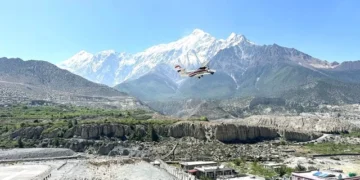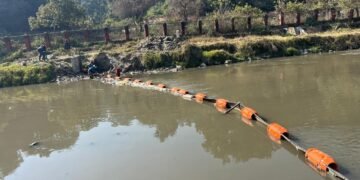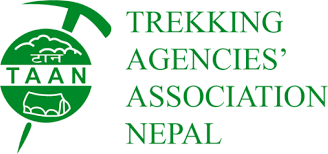Kathmandu, July 26: In recent years, many trekking organisations in Nepal, including the Trekking Agencies’ Association of Nepal (TAAN), have faced criticism for allegedly prioritising the facilitation of foreign visas over the development and regulation of the country’s tourism and trekking industry. This has raised concerns about the long-term impact on Nepal’s socio-economic progress and the integrity of its tourism sector.
Established in 1979, TAAN was envisioned as the foundation for promoting and regulating trekking in Nepal. Over the decades, it has contributed significantly to the development of adventure tourism, setting industry standards, and advocating sustainable practices.
However, allegations have surfaced that TAAN in collusion with other trekking organisations has focused more on helping individuals obtain foreign visas at the expense of addressing major issues in Nepal’s trekking and tourism sectors.
Critics argue that the bid to facilitate overseas employment opportunities has overshadowed the original purpose of these institutions while diverting attention and resources from important areas such as focusing on visas, improving trekking routes, raising safety standards, and ensuring the fair treatment and welfare of trekking guides and porters, they note.
Lure of foreign employment
The attraction of better economic prospects abroad is an important factor behind this trend. Attracted by the promise of higher wages and better living conditions, many Nepalis seek employment opportunities in countries such as the United States, Canada and Australia. Organisations that can facilitate this process are in high demand.
Although these services provide immediate benefits to foreign job seekers, they contribute little to the long-term development of Nepal’s tourism sector. This change has sparked a debate on the role and responsibility of trekking organisations such as TAAN to balance individual aspirations with national development goals.
Impact on Nepal’s tourism sector
The emphasis on foreign visas has had a negative impact on Nepal’s tourism industry. First, it leads to a brain drain, resulting in a shortage of experienced personnel in the trekking and tourism sectors. This lack undermines quality service and safety standards, potentially damaging Nepal’s reputation as a premier trekking destination.
Furthermore, less focus on regional development means that infrastructure improvements and sustainable tourism initiatives lag behind. Issues such as environmental protection, trail maintenance, and emergency response systems are often neglected, putting both hikers and the natural landscapes at risk.
Call for reform
To address these concerns, there are increasing calls for organisations like TAAN to reconnect their priorities with their fundamental goals. Advocates have stressed the need for a comprehensive strategy that balances the facilitation of foreign employment with strong investment in the domestic tourism sector.
Proposals include enhancing training programmes for trekking guides and porters, promoting eco-friendly trekking practices and developing better regulatory frameworks for trekking permits and route management. By focusing on these areas, TAAN and other similar organisations can help create a more sustainable and resilient tourism industry that benefits both local communities and the national economy.
Conclusion
The controversy over TAAN and other organizations’ focus on foreign visas underscores a broader challenge Nepal faces: balancing the immediate economic benefits of overseas employment with the long-term development need for key industries.
As the country navigates this complex landscape, it is important that industry leaders and policymakers work together to preserve Nepal’s rich cultural and natural heritage, and ensure that its tourism sector remains a vital driver of economic growth and development.





















